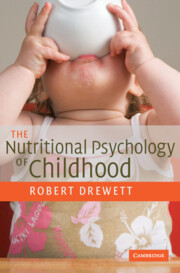Book contents
- Frontmatter
- Contents
- List of illustrations and table
- Preface
- 1 Introduction
- 2 The development of feeding behaviour: infancy
- 3 The development of feeding behaviour: weaning onwards
- 4 Born too small or born too soon
- 5 Nutritional deficiencies
- 6 Nutritional aspects of some physical conditions
- 7 Failure to thrive
- 8 Adiposity and obesity
- 9 Adolescence and the eating disorders
- 10 Some concluding thoughts
- References
- Index
1 - Introduction
Published online by Cambridge University Press: 22 September 2009
- Frontmatter
- Contents
- List of illustrations and table
- Preface
- 1 Introduction
- 2 The development of feeding behaviour: infancy
- 3 The development of feeding behaviour: weaning onwards
- 4 Born too small or born too soon
- 5 Nutritional deficiencies
- 6 Nutritional aspects of some physical conditions
- 7 Failure to thrive
- 8 Adiposity and obesity
- 9 Adolescence and the eating disorders
- 10 Some concluding thoughts
- References
- Index
Summary
Introduction
My aim in this book is to summarise recent research dealing with psychological aspects of nutrition in childhood. Broadly speaking, these psychological aspects involve two kinds of problem – those concerned with the development of behaviour that is related to food intake, and those concerned with the later consequences of malnutrition, or more generally with the later consequences of different types of nutrition. The overall organisation of the book is developmental. I deal in turn with problems that arise before or around the time of birth, with problems associated with infancy and the weaning period, and with problems which are more characteristically associated with later childhood and adolescence. These are the major transitions. Birth is a major transition because although malnutrition can arise before or after birth (and malnutrition in both periods can have effects on the child's development), its causes before and after birth are obviously different: only malnutrition after birth can result from problems with the child's own feeding behaviour, for example. Weaning is a major transition between two quite different kinds of feeding behaviour. Adolescence and the period preceding it involve transitions of a different kind, characterised by changes in the meaning and significance of food and body weight rather than in the nature of eating behaviour and the foods that are eaten. But although the overall organisation of the book is developmental, some departure from this order is necessary, and there cannot, of course, be any strict demarcations between the different stages of life.
- Type
- Chapter
- Information
- The Nutritional Psychology of Childhood , pp. 1 - 17Publisher: Cambridge University PressPrint publication year: 2007

